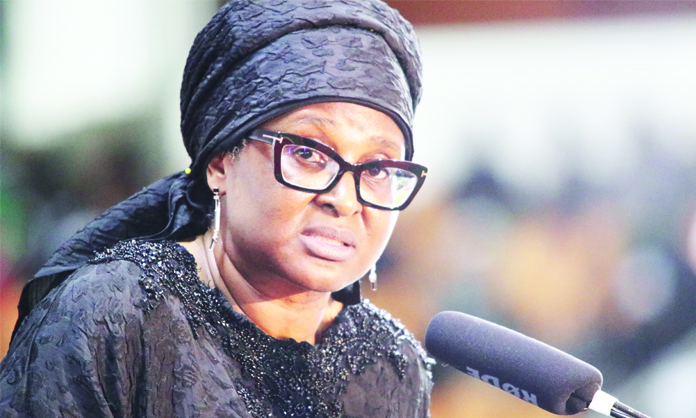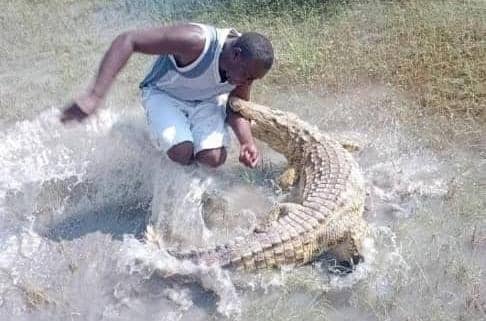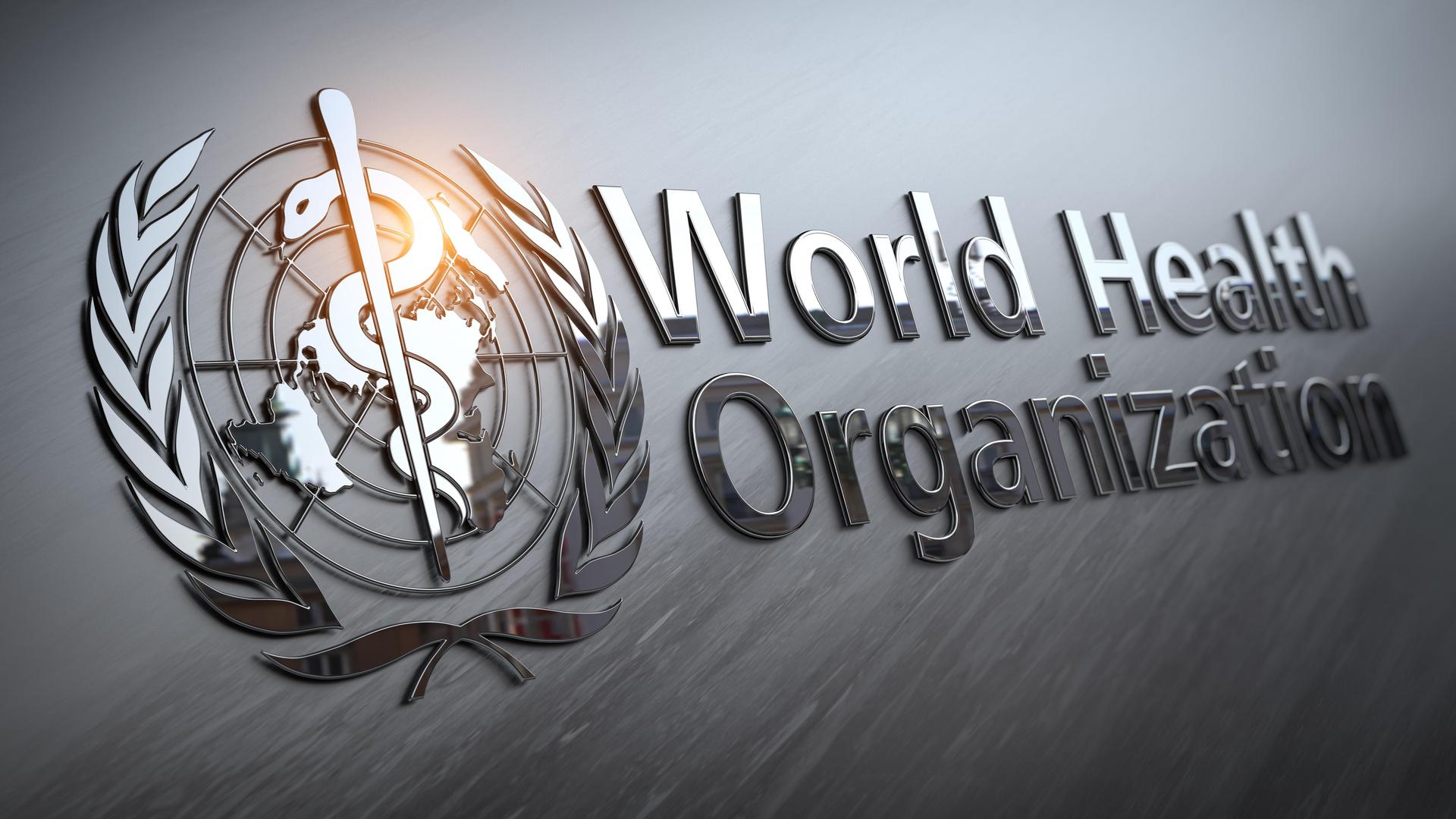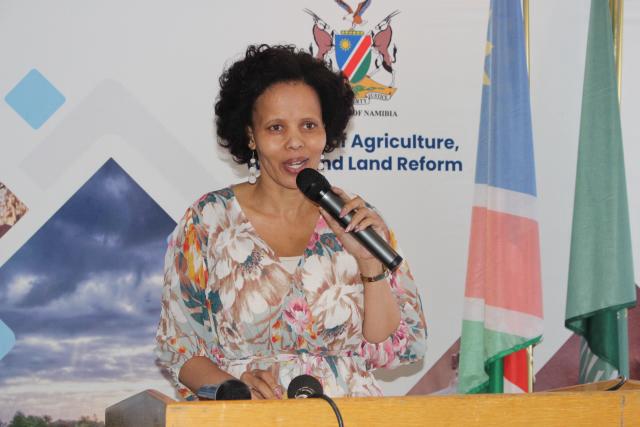Former first lady Monica Geingos delivered this tribute to her husband, the late president Hage Geingob, at a special memorial service in windhoek on Saturday.
I’m A very proud Namibian today.
I’m proud because a boy who was born under a tree at a cattle post in Grootfontein is being recognised and loved by the world. And he deserves it, because Hage loved and he was loved. The outpouring of grief since his passing is a testament to how deeply he was loved.
For us to joined by so many dignitaries from all over the world, including so many presidents, all of whom he regarded as his friends, speaks to his ability to make enduring connections.
Hage connected easily to people and people from all works of life connected easily to him.
I remember being in a holding room and former Nigerian president [Muhammadu] Buhari, who generally appeared like a soft-spoken person was standing alone quietly minding his own business. Hage walked over to him and within two minutes I heard a roar of laughter. I turned around assuming it was Hage, as he was such a joyful person, but to my surprise the roar was coming from president Buhari and Hage was quietly giggling next to him.
His sincerity had a way of connecting with everyone. That same sincerity of his has united us in grief from across oceans, throughout the continent and in every corner of Namibia.
Hage, the internationalist, the pan-African, the proud Namibian, the family man, the father to many, the joyful giver, the man who spoke of the ‘Namibian house’, a house where we pull together in the same direction, a house with a strong foundation.
In mourning Hage, Namibia became everything he wanted us to be – united, law-abiding and pulling in the same direction.
In his death, Hage truly came alive. As he transitioned out of the limits set by his earthly body, we also transcended the political, racial and ethnic boundaries we sometimes impose on ourselves.
Hage was dedicated to building an inclusive, united Namibia that lived up to its potential. He wanted the country’s integration of cultures and the lack of tribalism he was raised in. He wanted to see the same integration and unity in his blended family: He and I, Mangaliso, Helmut, Nangi, Oshoveli, Dangos, Nino, Junior and Kayla, as well as many of his sons and daughters that he took as his own.
The love and unity you see in our blended family are a testament to his leadership skills even at the family level.
Hage was our North Star – when we looked at him, we knew in which direction to go. He may no longer be with us, but he did leave us with a map that has clear directions.
Many told me this week that they felt lost, orphaned, fatherless. Some feel like they lost a baobab tree that shielded them from the sun: their protector, their defender and mentor.
I feel the same. I feel like I no longer have my anchor. I feel that if Hage dies, what am I doing here? But the answer is in Hage’s name. Hage means “the one who arrived”. Gottfried, as German-speaking people know, it means “God’s friend”.
President Pohamba, president Tshisekedi, they loved calling him Gottfried. And he loved to tell us that “Gei” in Geingob stood for “big” and that nobody must ever try to reduce him.
God’s friend arrived on this earth on third of August 1941. He conquered the big things his surname required of him and when his time was up he left. Like he did, it’s up for us to define our purpose and live up to it before our time is up. When you become what your name suggests – in English it’s called normative determinism.
Hage was indeed the one who arrived. He arrived on God’s time and he left on God’s time. God’s will is not our will.
Described as a destiny shaper by somebody who knew him well, he contributed significantly to shaping this country’s destiny and that of many individuals.
Hage was raised by his grandparents, Ou Lucia and Ou Hans. Like most children raised by old people, Hage was an old soul with a youthful spirit.
He called his mother, Rosalia, “Ousie”, which means sister and it was Ou Lucia who he regarded as his mother. He told me that when he was young that Ou Lucia never believed he could do anything wrong. Love was foundational to his high level of confidence.
Hage had confidence and courage. He was always a leader.
I remember when he joined Twitter in 2014 and the young people remember this, young people asked him to follow them and his answer was, ‘I’m a leader, not a follower’.
He was joking, but you needed to listen carefully sometimes to Hage’s jokes, as often he used a joke to soften a hard truth and he actually meant it.
Hage was indeed a leader, he was not a follower. He marched to the beat of his own drums and like a true leader he spent political capital on issues that he knew were for the greater good in the long term, even if it was unpopular in the short term.
I’ve always admired his ability to understand complex problems quickly. While others found a problem for every solution, Hage always found a solution for every problem. He was such a good problem solver that often he would turn a casual conversation into a solution-finding exercise even though you did not ask him for a solution,
Remember I said that he was an old soul with a youthful spirit. At 19, Hage was a teacher when being a teacher was simultaneously being a respected community leader.
He immediately became a church elder, taught Sunday school and commanded respect.
He always laughed at how he had to counsel married couples when he barely knew anything about relationships.
Another leadership experience he always narrates was how on his way into exile he had the privilege of meeting and being guided by the great Hosea Kutako – a meeting that he always spoke about as an immense privilege and which I suspect drove his desire to build a shrine to enhance the knowledge of current and future generations about the greatness of Hosea Kutako.
Hage was not only a leader, but he was generous in recognising the leadership of others – but I digress.
We all heard his eulogy. Hage was always in a position of power, whether as a teacher, a young man or a president much later in life. And with the full confidence of president Nujoma, Hage has wielded power for most of his life.
For a powerful man, Hage was very humble. But like all powerful men, he was also very complex, but within his complexity was simplicity, authenticity, consistency and vulnerability.
This is what made him a people’s person. He had a heart for people and people had a heart for him.
I want to thank his brother, the president of the Republic of Namibia, for according him the hero’s funeral that he deserves. I would like to also thank all of you for giving him a send-off befitting of a hero.
My husband was an honest man, a man who spoke his mind, even when it was inconvenient and uncomfortable to do so. He was blunt when discussing third terms and leaders who overstay their welcome.
In reflection, Hage and I were informed by doctors on 16 January 2024 that he had cancer, after a biopsy. We went to our first oncology visit on the 17th of January to devise a treatment plan and on 18 January he insisted on releasing a press statement notifying the public that he had cancer.
Did he know how long he had to live? The answer is no, he didn’t.
His passing was traumatising and unexpected. He was eager to retire, we had such plans and true to his word he didn’t overstay.
In the last few months he spoke often about ensuring a smooth transition and even though he left too early, the transition was smooth – it’s just not the one that he expected.
His concern about abrupt departures always centred around smooth transition and ensuring that there were no power vacuums.
The country swore in a new president on the same day he passed and there was no power struggle. We should be proud of ourselves and our political leadership and that’s both from the governing party and our opposition. If there was a display of political maturity it was in that moment and long may it continue.
Many people can tell you where and what they were doing when they heard that Hage Geingob was no more. I’ll tell you where I was: I was at his side, shocked to the deepest part of my core that someone so full of life, so full of love, had just taken his last breath.
Death will humble you. We are not called by our maker when it’s convenient for us or those who love us. We are called when the Lord so decides.
It’s been raining since Hage passed away. Yesterday when his coffin was outside Casa Rosalia, which is our private residence, the sun appeared briefly from behind the clouds and shone straight on his coffin. When I walked back into Casa Rosalia and sat down, the clouds had returned and there was a rainbow.
These things do not happen by coincidence. That’s the Lord telling us we lost a great man.
Hage’s passing is a reminder to all of us to be prepared.
I was not ready to lose Hage and from the massive outpouring of collective grief from all of you, it does not appear that any of us were ready.
Hage wore his heart on his sleeve, and in response this country wept.
The scenes we saw yesterday were heartbreaking and heartwarming in equal measure: A nation united in grief, but celebrating their departed president.
Since the morning of the fourth of February, a dull ache settled into my stomach and it has remained there to date. Grief unleashes anarchy in your system as your mind, emotions and body simply do as they please, when they please. One minute you’re walking and talking and the next moment you are gasping for air as a wave of intense sadness washes over you.
When you lose someone we love we lose a piece of ourselves and the closer you are the bigger that piece. Hage gave so much of himself that we all had a piece of him and may we all be consoled.
Hage’s brothers Peter Katjavivi, president Mbumba and his sister first lady Sustjie Mbumba have been with us as the Geingob family since this nightmare started and have not left our sides since.
The piece they lost of Hage was big and despite their grief they focused on keeping us whole. First lady Sustjie sat with me at the hospital during the day and brought me soup in the evening because my children went to report me that I was not eating.
Many years ago she told me that if I was ever in trouble with Hage, which was often, I should say, ‘Ou Hageba axaba’. And one day I found myself in trouble and I said, ‘Ai, ou Hageba axaba’, and he laughed so hard he forgot that he was supposed to be annoyed with me.
And he asked me, ‘was it Sustjie or Bience who told you that?’, so I said, ‘no it was ‘Sustjie’, so he says, ‘next time when you want to escape consequences you should say, ‘ou Hageba kai axaba’.
The vice president, her excellency Netumba Nandi-Ndaitwah, has also saved me. When I got back from the morgue that morning, I walked into the house for the first time as a widow, and the abyss immediately tried to swallow me.
She lifted me from the floor where I had fallen and spoke to me in a stern, reassuring and compassionate voice. She prevented me from sinking deeper into the darkness that constantly lurks and one must be grateful for the leadership that we have in this country.
What can I say to all of you, Namibians and non-Namibians all over the world who’ve mourned Hage like he’s yours?
In many ways he was. Hage never wanted to be owned. He belonged to all of us. He accepted that and as a family we accepted that, too.
I’m not the same person I was before this nightmare started. I’m not even sure who I am without Hage’s constant love. All I know is that I see many things very differently now and we all should.
We came to a near emotional standstill and perhaps this is the time to press a reset button on how we relate to each other as individuals, families and citizens.
Death brought us together, no matter what our differences were before it and it’s love, our shared love for this country, that will keep us together.
There’s a duality to love and grief. Love is replaced by grief and grief is replaced by love. We mourn because we loved.
I saw many broken people, particularly those who worked with Hage and the pain was deep because the connection was equally deep.
I’ve not ruled out seeking mental health support to cope and I would encourage anybody who’s struggling to shake off the feelings of sadness and loss to do the same, particularly the people who continue to work at the Presidency.
Hage’s ordeal put me in the front row of the devastating impact of cancer. It also required that I spend a lot of time with many incredible Namibian doctors in the last few weeks. All of the doctors I interacted with are concerned about the rising cases of cancer in Namibia and what appears to be a global phenomenon.
A few mentioned that they were pleased to see an increase in men looking to be screened for cancer once the president announced that he had cancer. The WHO recently announced a frightening projection of a rise of 77% in cancer cases by the year 2050. If anyone is watching megatrends in public healthcare, cancer care, particularly the inequities that define it, should be a priority focus area. It certainly will be for me.
I want to thank all the healthcare workers who helped us during this difficult period.
Everyone went over and above the call of duty.
This extends to all of you, the dignitaries present today and everyone who’s mourned Hage.
The singing and celebration of life have comforted us, as we are sure that Hage was loved and through our collective memories he’ll live forever.
President Nujoma, president Pohamba, we love you.
We will not wait until you leave us to tell you how important you are and that you are our heroes.
Hage was because you were. Even though Hage has left us, the legacy continues. Ou Hageba, kai axaba.
You defined love, you were loved by all of us and nothing will ever be the same without you.
The people’s president, my president, my husband, my best friend, you were born a peasant and died a president.
Rest in power.
- This is a slightly shortened transcription of the original tribute.
Stay informed with The Namibian – your source for credible journalism. Get in-depth reporting and opinions for
only N$85 a month. Invest in journalism, invest in democracy –
Subscribe Now!










